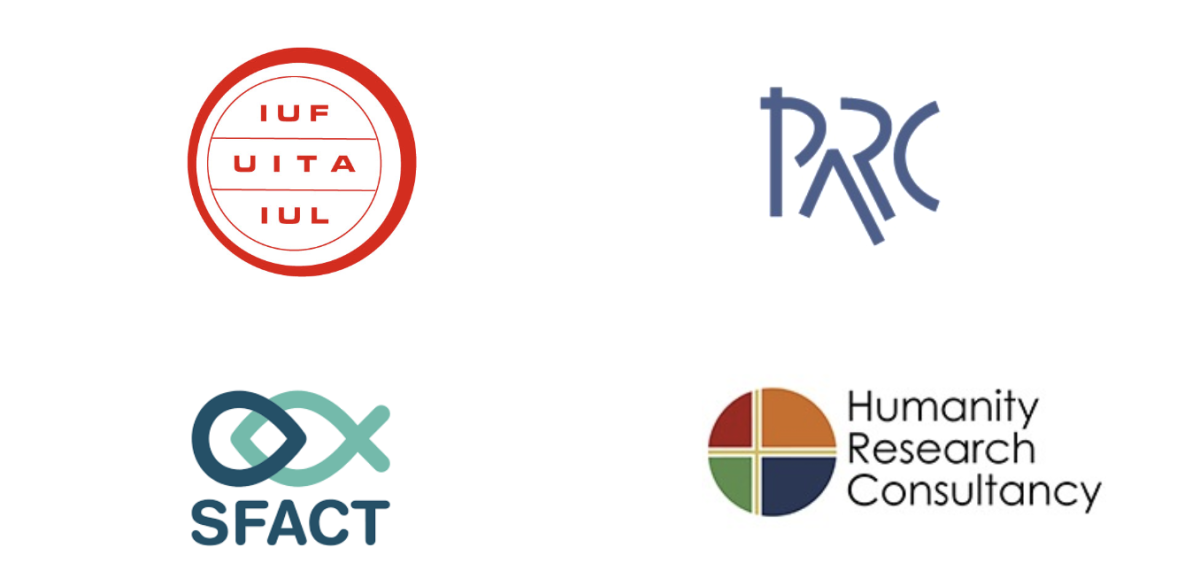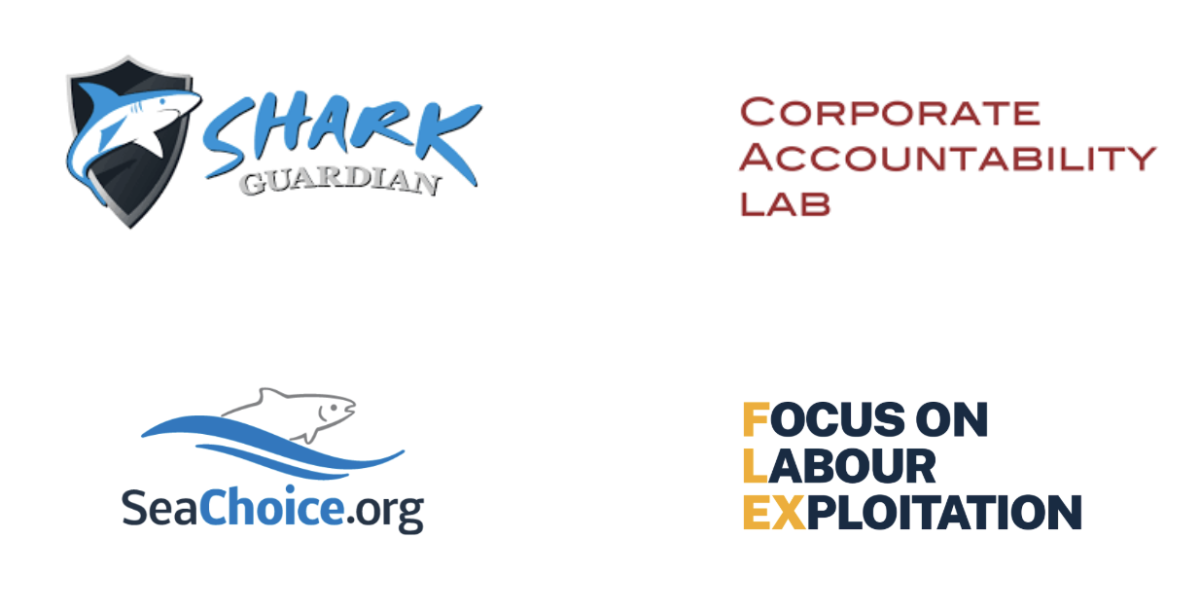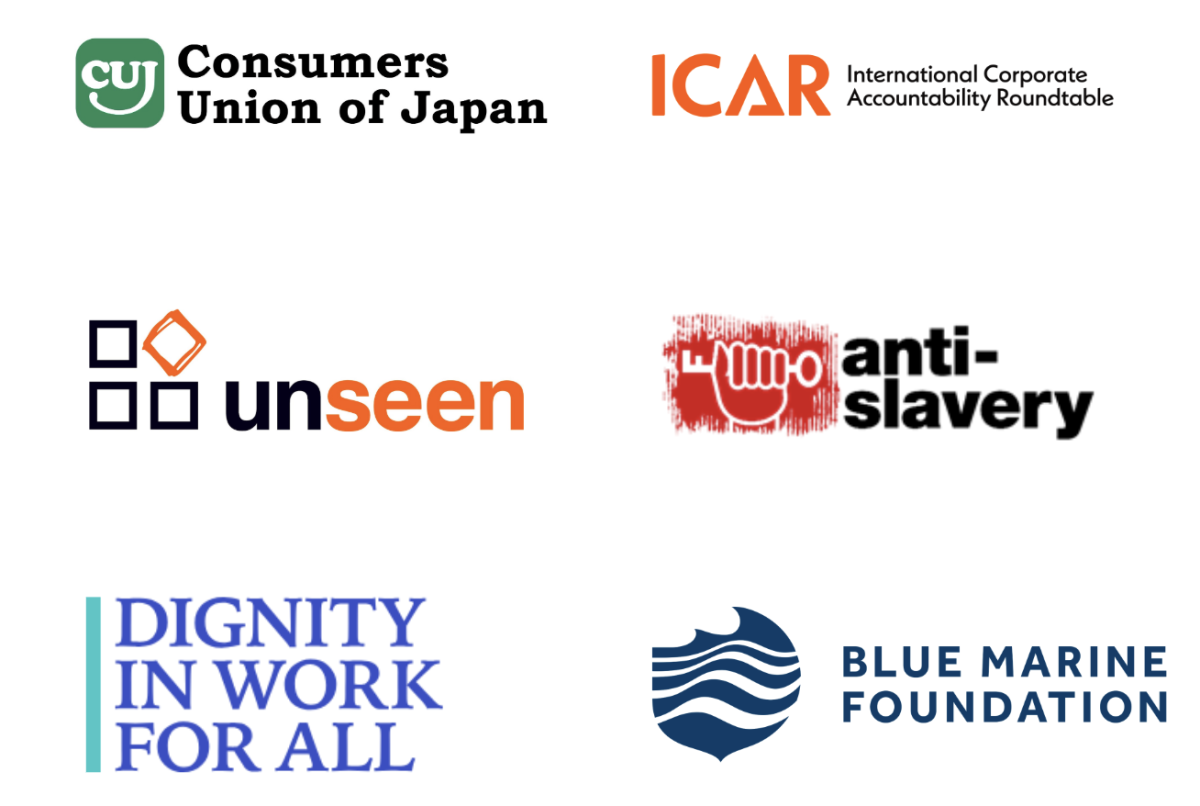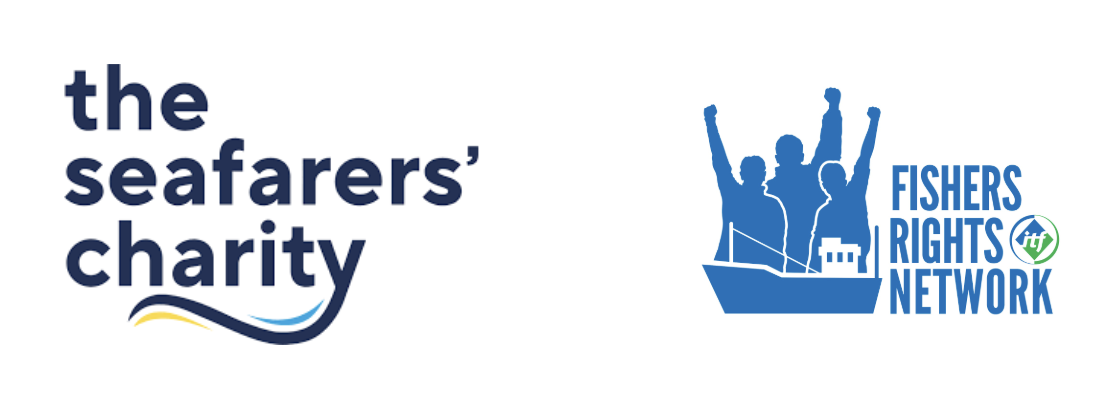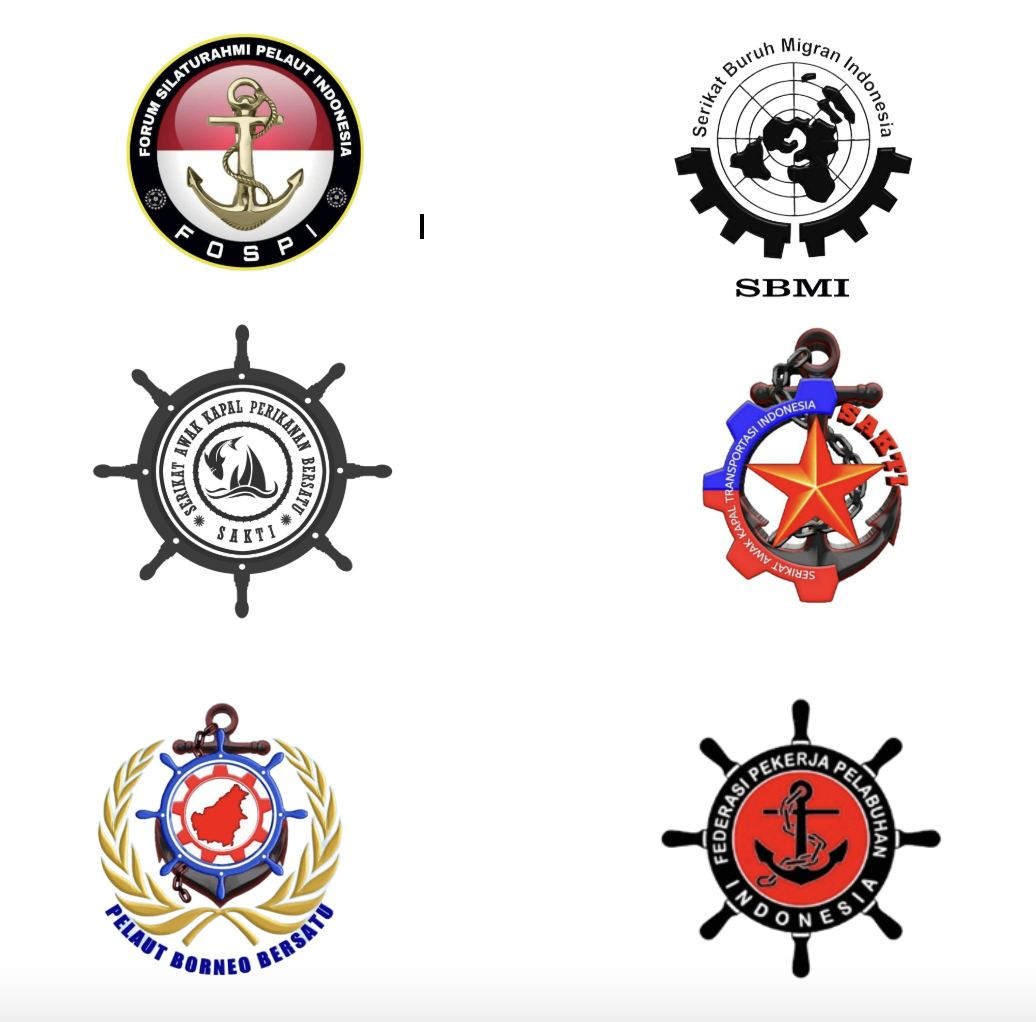Seafood Working Group Calls for MSC Accountability on Forced Labor in Certified Fisheries
February 10th, 2025
Dear Marine Stewardship Council:
We, the Seafood Working Group (SWG), representing labor, human rights, and environmental organizations, write to express our deep concern over how the Marine Stewardship Council’s (MSC) certification is enabling companies to conceal labor abuses in their supply chains. The MSC ecolabel is often marketed as the ”gold standard” for sustainable seafood and is used by many companies to improve market access for their seafood products. However, recent research has unveiled incidents of forced labor and abusive working conditions on vessels within MSC-certified fisheries.
The fishing sector is rife with severe labor abuses, with at least 128,000 fishers being subjected to forced labor. The industry is also extremely dangerous, with over 100,000 fishers losing their lives each year due to hazardous working conditions. Many fishers face grueling hours, withheld wages, physical abuse, and extreme isolation, often with little to no protections or recourse. Despite these alarming conditions, seafood from such fleets continues to enter European and U.S. markets. This systemic disregard for fishers' labor rights in the seafood sector is unacceptable and must urgently be addressed.
In our view, MSC must take responsibility for the role of its social policies and processes in enabling abuse of workers in certified fisheries, and its attendant role in instances of certifying fish produced under conditions of labor exploitation. However, rather than taking accountability MSC have since emphasized that its ecolabel does not offer assurances that there is no forced or child labor in MSC fisheries. This claim contradicts MSC’s past statements and actions such as:
- From 2019 onwards MSC has introduced a series of policies and measures focused on child and forced labor issues.
- MSC employs a Head of Social Policy, whose responsibility it is to lead the development of policy for the organization towards factoring in social issues within the MSC’s certification programme, contradicting the claim that MSC’s ecolabel is purely ecological and has no social focus.
- In the MSC Tuna Handbook (2022), MSC claimed it had "taken steps to keeping forced labor out of the MSC certified supply chain" and that "the best way for tuna buyers to significantly reduce exposure to the above (forced labor) risks is to choose MSC certified tuna”.
- In 2022, MSC staff co-authored a paper offering an overview of their labor policies titled “Illuminating the mechanisms to mitigate forced and child labour risks within Marine Stewardship Council certified fisheries”
- In 2023, in response to The Outlaw Ocean Project regarding their concerns about forced labor in MSC-certified processing facilities, MSC stated, “The requirements for labor audits are comparatively new to the MSC programme… If we have evidence that they are not effective, we will consider what other methods may be more suitable or improvements needed.”
- In May 2024, MSC’s CEO- Rupert Howes, publicly stated "social issues are profoundly important, and we’re all deeply troubled by what we’re reading in terms of human rights issues… MSC is going to take stock… and I suspect we will review what we’re doing and make changes."
In light of the above, the SWG sees a number of critical issues that remain unresolved and require urgent attention:
Unresolved Concerns Raised by Seafood Working Group Members
- MSC's Reliance on Unverified Self-Reports Fails to Address Systemic Labor Abuses
MSC only collates unverified self-reported declarations from companies about their efforts to address labor and human rights issues. These self-reports fail to offer an accurate picture of conditions on fishing vessels and, therefore, contribute to enabling the abuse of workers in certified fisheries. Forced labor and labor exploitation remain systemic issues in the fishing industry, and voluntary, piecemeal approaches like MSC’s audits are not fit for purpose to address these challenges.
- MSC Relies on Fishery-Level Audits That Cannot Detect Labor and Human Rights Violations
MSC’s fishery-level audits can never effectively capture the complexity of labor exploitation in global supply chains. Issues like forced labor, wage theft, and unsafe working conditions are often hidden and go unidentified in audits in general. MSC’s fishery-level audits are even more inadequate as they rely solely on environmental information from governments about the fishery as a whole, and do not assess any information at the vessel-level.
- MSC Continues to Certify fisheries, including Vessels Facing Forced Labor Allegations
MSC’s policy of only removing vessels from its certification when there is a formal forced labor conviction, and not suspending vessels under investigation or where there is credible evidence of abuses, prevents the identification and addressing of labor abuses unless they are formally confirmed by a judicial process. This effectively allows seafood produced under forced labor conditions in its program to persist with low to no scrutiny. This has been demonstrated by recent research highlighting that, despite credible reports of forced labor from fishers dating back as far as 2019, vessels have continued supplying MSC-certified tuna to the market without any clear, corrective actions being taken to address or prevent such abuses or provide remedy to affected fishers. - MSC’s Business Model Creates an Inherent Conflict of Interest for Effectively Addressing Labor and Human Rights Abuses
The MSC’s business model relies on the fishing industry, with 88.7% of its revenue coming from royalties on products that carry its logo. MSC has set targets to increase this source of income, aiming to grow its certified seafood products from 19% of the global catch in 2023 to more than 33% by 2030. As a result, it has an embedded financial interest in keeping major fisheries in its program, even where there is evidence of forced labor without meaningful or credible efforts to prevent and remedy it. Such a financial structure undermines MSC’s ability to guarantee labor standards for fishers, rendering it unfit for purpose in addressing labor rights issues. For this reason, we present the following recommendations:
SWG Recommendations
The best way forward is for MSC to recognize publicly the limitations of its certification in addressing forced labor and commit to the following:
- Publicly Disclose the Limitations of the MSC Certification and Step Away from Making Any Labor-Related Claims in MSC Certification
MSC must accept its responsibility for failing workers in MSC certified fisheries that have experienced forced labor or abusive working conditions. MSC must clearly publicly state that its ecolabel does not ensure protections for labor rights, stop referencing its Labor Eligibility Requirements as a defense to public criticism, and make it transparent to all stakeholders, including consumers, that the certification fails to safeguard against forced labor and exploitation. - Explicitly Warn Companies Against Relying on MSC Certification for Sourcing and Procurement
MSC must inform companies that its certification does not account for labor and human rights abuses, and relying solely on the MSC ecolabel for sourcing decisions without considering labor issues exposes both workers and companies to risks. - Assert That MSC Certification Should Never be Used as a Substitute for Comprehensive HRDD
MSC must emphasize to companies that its certification standard should never be considered part of any company’s Human Rights Due Diligence (HRDD) process, nor should it be considered a substitute for comprehensive due diligence. In accordance with the UN Guiding Principles on Business and Human Rights (UNGPs), companies must instead ensure that HRDD requirements are cascaded throughout their supply chains, down to the fishing vessel level, and to guarantee timely and effective remediation of any labor violations.
- Promote Legally Binding Solutions with Independent, Democratic Trade Unions to Protect Labor Rights
As MSC does not provide adequate assurance for the protection of labor rights, it should actively and publicly endorse legally binding solutions such as Collective Bargaining Agreements (CBAs) that effectively protect fishers' labor rights or other mechanisms that allow workers to assert their collective agency to monitor, enforce, and get effective remedy for labor rights violations. These agreements, negotiated in partnership with independent, democratic unions provide a reliable mechanism for ensuring fair wages, safe working conditions, and accountability of employers. In cases where unionization is not possible, such as due to national legal restrictions, legally binding agreements between employers and democratic worker organizations should be established. To extend protections throughout the broader seafood supply chain, the increasing use of other legally binding agreements such as Enforceable Brand Agreements (EBAs) with unions, democratic worker organizations, and Global Union Federations (GUFs) should also be promoted as a complementary tool that strengthens labor protections by holding companies accountable for labor conditions across their entire supply chain, including those beyond the direct employer-worker relationship.
Several SWG members—including Global Labor Justice (GLJ), International Transport Workers’ Federation (ITF), Humanity United, Freedom Fund, and Greenpeace US — have already issued public statements voicing serious concerns over this presence of forced labor in MSC-certified fisheries. The SWG remains committed to holding MSC accountable and advocating for meaningful sector-wide reforms that truly protect workers in seafood supply chains. We look forward to MSC’s response.
Sincerely,
The Seafood Working Group
[List of Signatory Organizations]
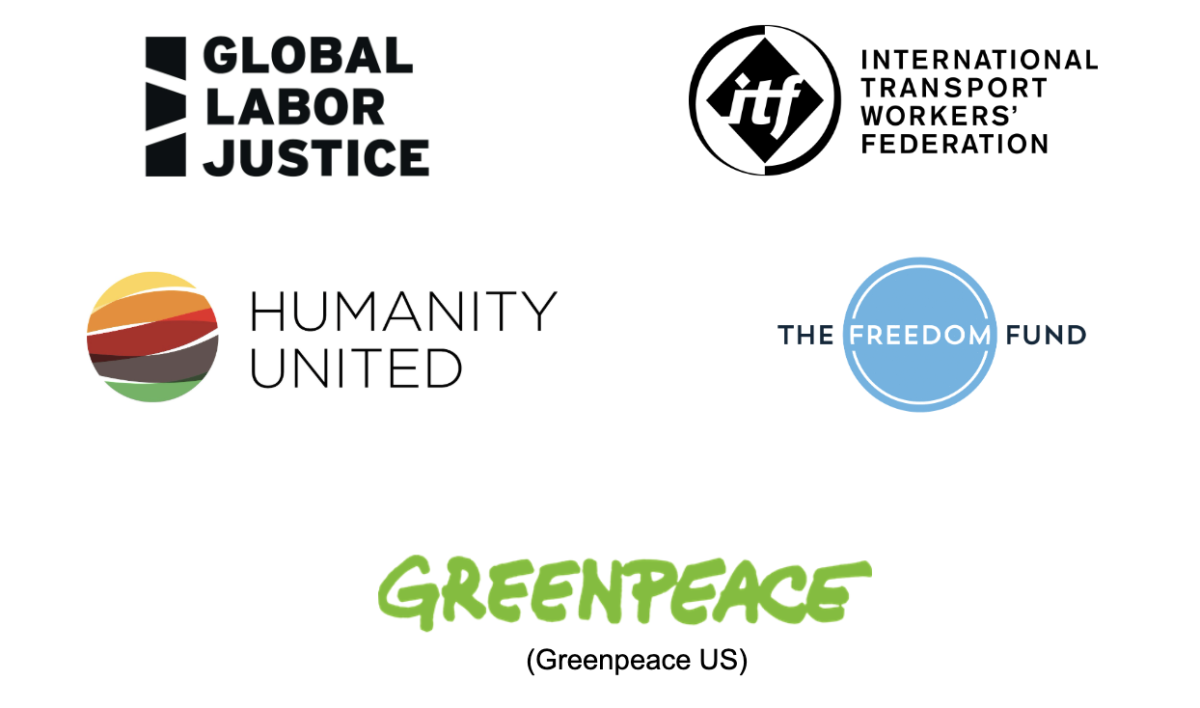
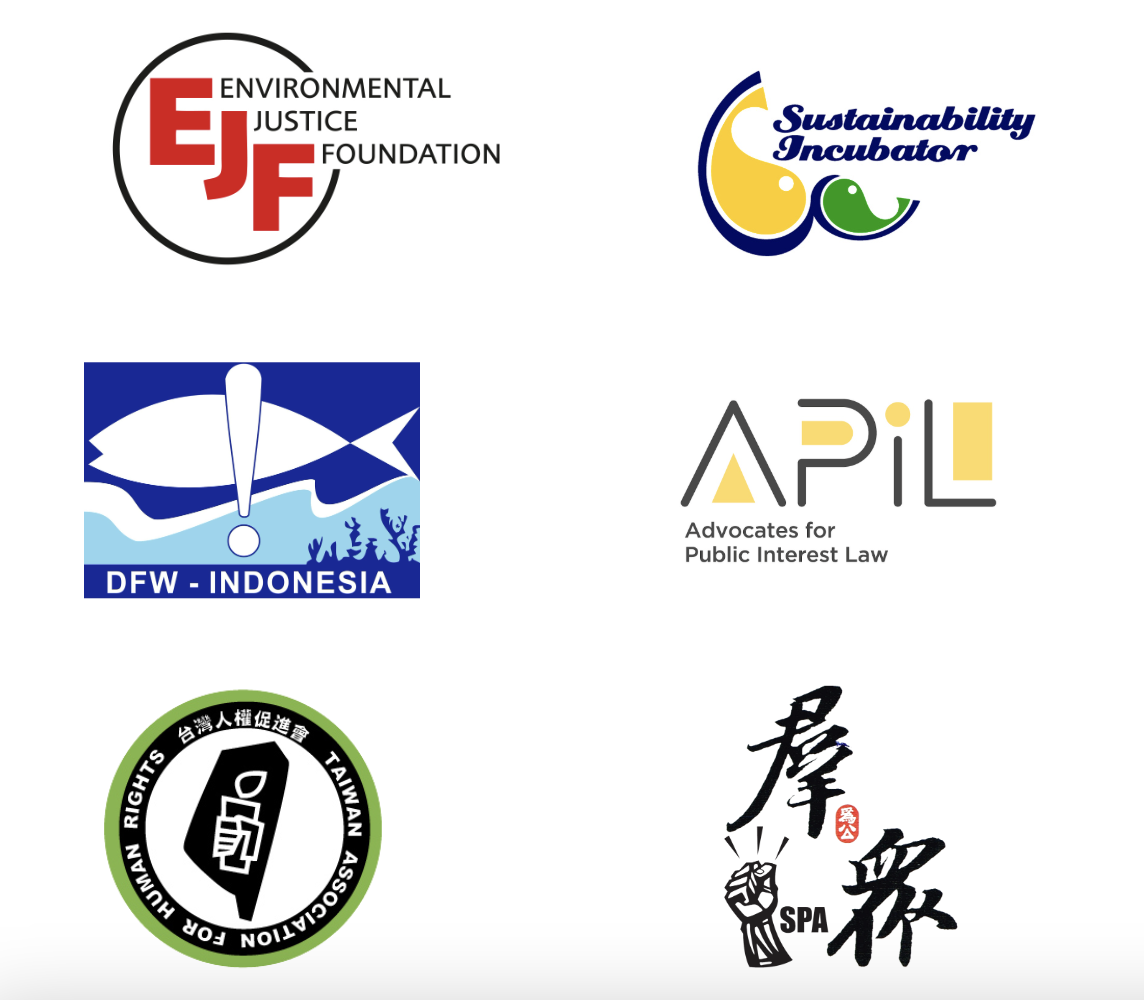
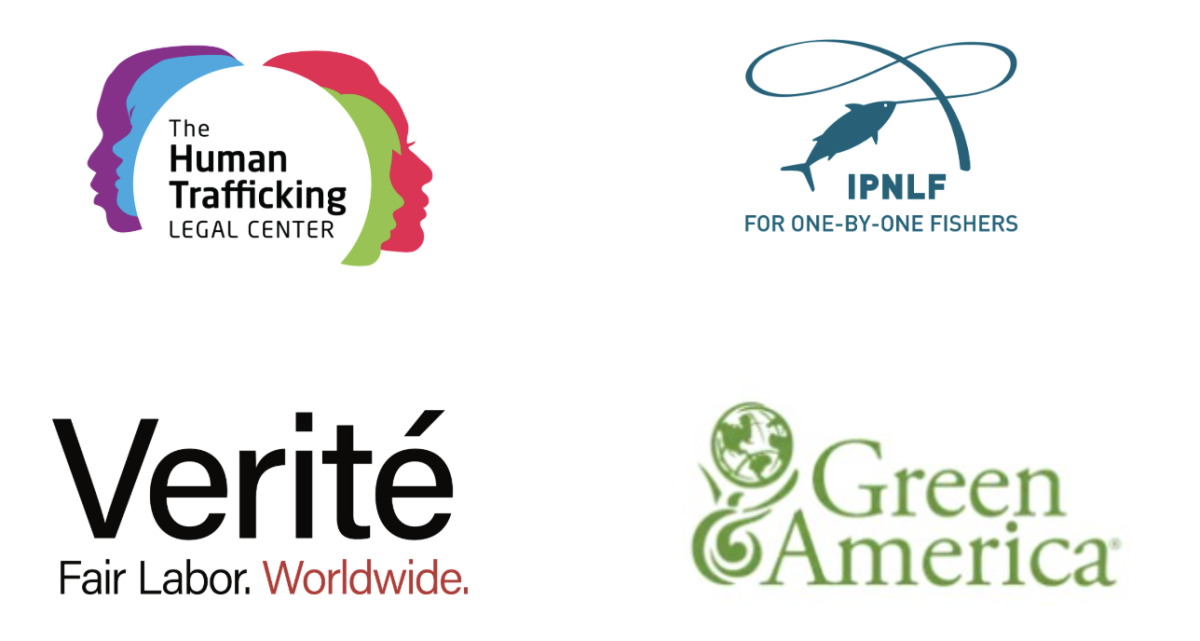
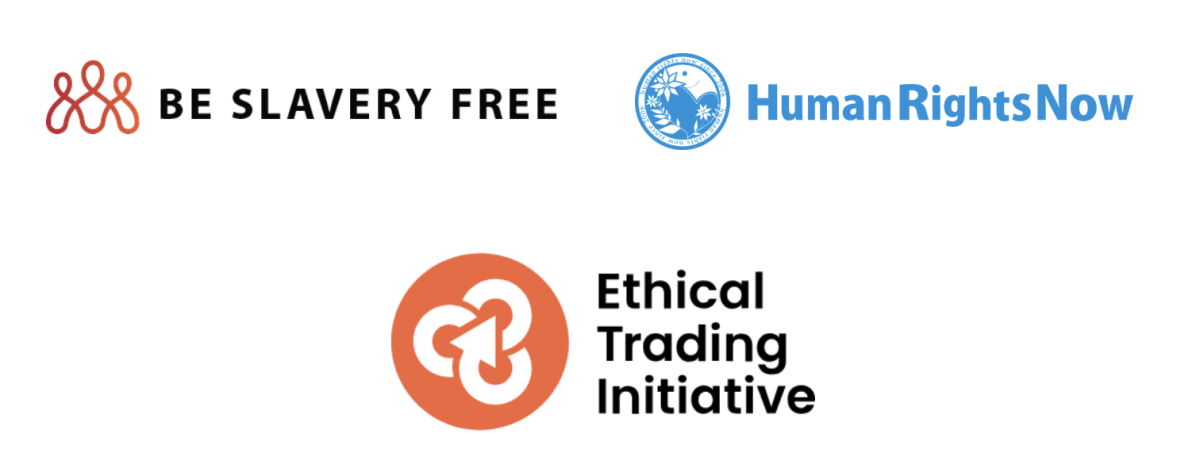
External Signatories
